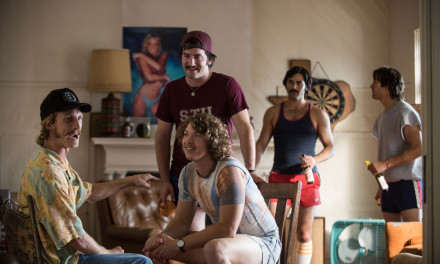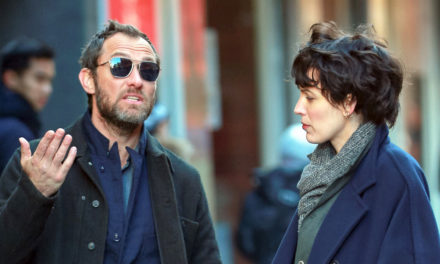
Based on Broadway playwright Peter Quilter’s play, End of the Rainbow, Rupert Goold’s film, Judy, charts the last two years in the life of Judy Garland. As a biopic it’s a bit messy and doesn’t exactly endear audiences to its subject as most of the film’s screen time is devoted to the star’s various addictions, failed relationships and overall poor choices. It’s frustrating to watch someone demonstrating such an inability to get it together even if the reasons are clearly justified.
Criticisms aside, there is one reason to see Judy above all else and that’s due to star Renee Zellweger’s towering performance as Garland. Zellweger’s physical embodiment in the role is pretty impressive, accurately capturing the performer’s essence. Her interpretation is pretty much spot on even if it’s an unenviable task she’s been given in singing the iconic songs of Garland’s repertoire with her own voice. She has the speaking voice and the physical tics down to a science and is always interesting to watch but we all know that unmistakable singing voice Garland possessed and it’s hard to listen to her without hearing those familiar original recordings in our heads. Still, it’s Zellweger’s performance that rescues the film when the part of Judy Garland, as dictated by the film’s script, threatens to become one dimensional and a bit rote and predictable.

Renee Zellweger in Judy
The film opens as Garland has been asked to participate in a series of shows at the London venue, Talk of the Town. Garland’s personal life could not be in more turmoil. She’s battling her third ex-husband, Sid Luft, for custody of their children and her dependence on painkillers and addiction to alcohol is also at an all-time high, not to mention that she’s literally homeless. Her unpredictability and volatility threaten to make her stay in London an unpleasant one for all involved as a result of all the swirling drama. In the midst of all this she tentatively embarks on a doomed fourth marriage with an American boyfriend as well. If we didn’t know the end of this story already one could easily surmise it wasn’t going to end well. To say the story is a downer is an understatement.
Still, the film does have at least one subplot that I found quite moving. This one revolves around the friendship Garland fosters with two gay fans at a time when homosexuality was a crime punishable by law. It’s a touching section of the movie that manages to lift the film out of typical biopic territory and I found it to be quite refreshing, humanizing Garland in a way that isn’t always the case where the rest of the film is concerned. If only the rest of the film had managed this feat then we would have something to talk about. As it stands, Judy is fine as a basic primer on the late performer’s final chapter.
Judy is playing everywhere.
Questions or comments? [email protected]








